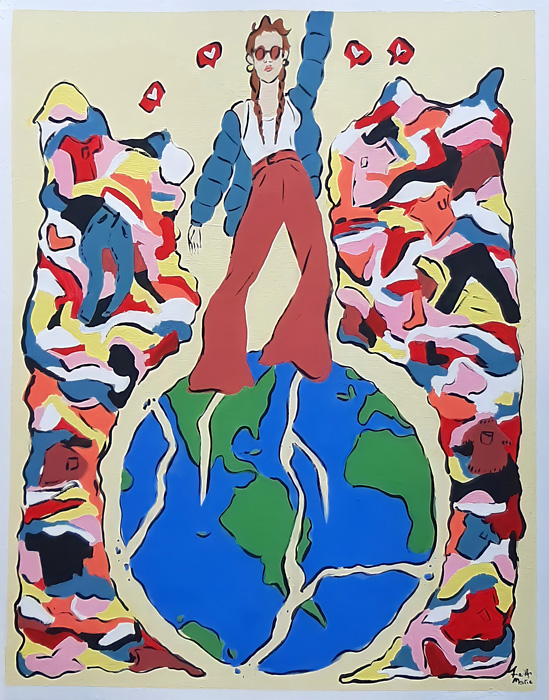by Katrika Tandon
Major retailers making the case for slow fashion.
As a college student, one of my biggest lifesavers is online shopping. With a click of a button, I can have whatever I need delivered to me in a matter of days. Of course, online shopping isn’t just used for necessities. Let’s talk fashion—who doesn’t love having countless outfit options available at your fingertips? Online retailers such as Shein and Fashion Nova have made clothes shopping more accessible with their plentiful options and affordable prices. This has led to the rise of fast fashion: a movement involving “inexpensive clothing produced rapidly by mass-market retailers in response to the latest trends,” as defined by Oxford Languages. However, the global consequences as well as ethical implications make us question: Is the convenience really worth it?
Fast fashion negatively impacts our health as well as the overall health of the planet. The environmental impact of this industry is enormous; with areas of concern such as carbon emissions, water consumption, and large-scale pollution. According to Business Insider, the fashion industry releases 10% of total global carbon emissions—as much as the entire European Union. The manufacturing of textiles also relies on an overwhelming amount of water—approximately 700 gallons are used to produce just one cotton shirt. Individuals today are simply not as mindful about overconsumption. A 2015 documentary, The True Cost, states that the world consumes 80 billion new pieces of clothing each year. This is 400% times more than the consumption a mere 20 years ago. The average American generates 82 pounds of material waste each year, as 85% of all textiles go to dumps. The environmental consequences are only intensified because of constant demand.
A sort of counter movement is literally known as slow fashion: the case for halting excessive manufacturing and reducing mindless consumption overall. This movement advocates for production that respects the environment, species, and humanity. The Alliance for Sustainable Fashion launched by the UN focuses on stopping the “environmentally and socially destructive practices of fashion.” Some retailers, such as Adidas, have committed to practices that use more sustainably sourced substances, involving products made of recycled materials.
The ethics behind this industry are finally being confronted. A 2019 World Resources Institute study showed that 80% of apparel is made by 18-24 year old women, specifically in developing nations. A 2018 US Department of Labor report found proof of coerced and child labor regarding the fashion industry in Bangladesh, Brazil, China, India, and the Philippines, among many others. Once again, this issue is only accelerated as a result of constant demand and rapid consumption. Profit gets prioritized over basic human welfare.
Overconsumption and similar issues have been a part of the fashion industry for the past 30 years. It’s a very large thing to change and we can start by demanding accountability from these brands and corporations. Certain companies, activist groups, and governments have already begun to pave the way so we can all look to a new and more promising direction—one which concentrates on more sustainable practices—leading to a healthier and more equitable future.
About Kratika Tandon

My name is Kratika Tandon and I am a sophomore at the University of Illinois atUrbana-Champaign. I’m planning on majoring in Environmental Sciences with a concentration in Human Dimensions of the Environment and graduating with a minor in Political Sciences. I am interested in pursuing environmental law after graduation. I graduated from Dunlap High School in 2020 as class valedictorian. I am incredibly passionate about sustainability and am well-versed in writing about environmental issues, social justice, and racial equity. I am proficient in informative and expository writing as well as public speaking. I was a part of my high school’s speech team for the last four years and the president of our local Interact Club. I am currently a Communications Intern at the University’s Institute for Sustainability, Energy, andEnvironment. I enjoy working with a team and have strong leadership and communication skills. I love being a part of this program because I want to use my voice and writing to inspire others and facilitate change.
About Faith Marie

Faith Marie is a homeschooled senior in high school who dreams of being an artist entrepreneur one day. She fell in love with creating at a young age and now experiments with all kinds of mediums. You can find her on Instagram at @faithmariedraws.

